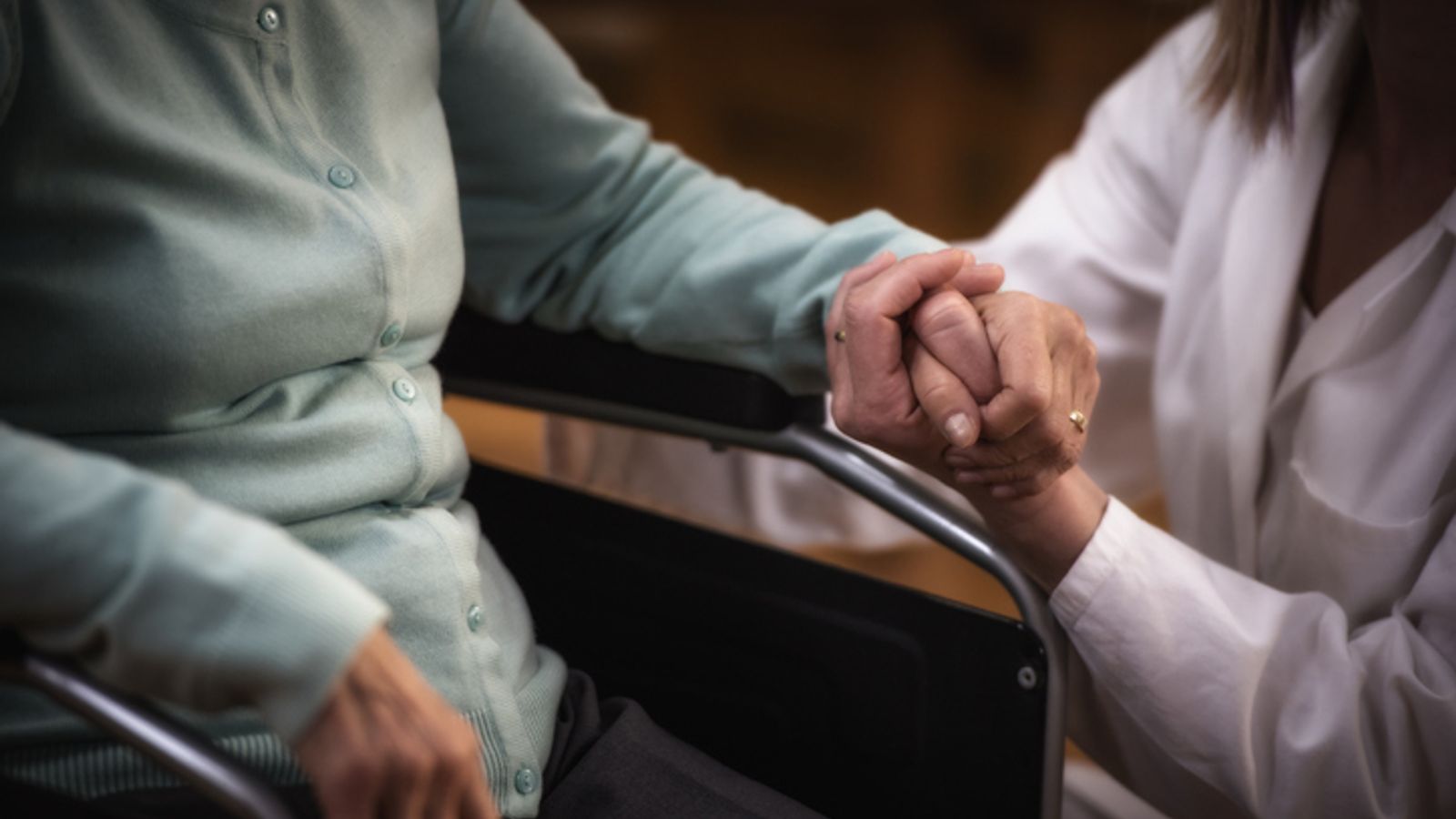National insurance is set to increase by 1.2% under plans to be unveiled by the prime minister today to “fix social care”.
Boris Johnson pledged to “fix the broken care system” when he was elected in 2019.
But with an ageing population and huge backlogs from the coronavirus pandemic, vaccines minister Nadhim Zahawi has told Sky News it would be “arrogant” to assume a simple NI increase would solve the problem.
Here, Sky News explains what social care is, how the system works now and how it could change.
Please use Chrome browser for a more accessible video player
What is social care?
Social care, often referred to as adult social care, is the support given to anyone over the age of 18 who is unable to look after themselves on their own.
This could mean they have a physical or learning disability, or a physical or mental illness.
The care usually involves help with daily routine: washing; dressing; eating, and buying food and provisions.
Adult social care services also provide support to friends or relatives caring for their loved ones by offering respite.
It is dealt with separately to children who in are in care or foster homes.
How is it provided?
Adult social care is provided in three ways:
• At home – often referred to as domiciliary care – whereby carers visit someone a number of times a day at home
• In care homes – this can be a residential care home or a nursing home, where more specialist medical care is available
• Day centres – often referred to as day care – where someone spends time in a community setting that helps them with their needs – but still lives at home
How is it funded?
Adult social care is separate to the NHS.
This is because unlike medical care, social care is not free for everyone – it depends on how much money you have and your level of need.
In England, if you have £23,500 in financial assets, you will have to fund your own care.
If you don’t meet the threshold, your local council will pay for your care.
Across the country, only a small proportion of social care is paid-for by the state – the majority is self-funded or paid for by families.
Recent figures from health consultants Lang Buisson show that only about 35% of people in care homes in England were entirely funded by the state, compared with 45% who paid for their own care and 11% who were partially-funded.
The rules are different in Scotland, Wales and Northern Ireland, as they are decided by the devolved administrations.
How do local authorities pay for it?
Local authorities get money to pay for adult social care in two ways.
Unlike the NHS, central government does not provide a dedicated budget for social care.
Instead, local authorities have to allocate money from their local government finance settlement (the amount of money central government gives to local authorities each year) to pay for care.
Councils can also use money raised through council tax, business rates, and local fees and charges to help pay for social care.
As pressure on the system has built in recent years, several authorities have added “social care pre-sets” to council tax bills, which means a proportion of residents’ council tax bills can only be spent on social care.
Although the NHS does not fund social care, its Better Care Fund was introduced to help local authorities provide better integrated health and social care in the community.
Some councils may use the Better Care Fund to help pay for social care, but this depends on local priorities.
How could it change?
Boris Johnson will today outline his plans to help better fund social care.
He is expected to increase working people’s National Insurance contributions by 1.2% to give local authorities more money for care.
This would be a rise of about £5 a week for the average worker.
Another change, Sky News understands, is that people of pension age who are still working will also have to pay National Insurance – currently they are exempt.
These changes will be effective across the whole of the UK, because tax changes apply to all four nations.
The threshold for paying for your own care is also expected to increase significantly from £23,500 to £100,000.
And Sky News understands that the amount those who have to pay for their own care will be capped at £86,000.
This will prevent them losing more of their savings and financial assets – but may not include accommodation costs for people in care homes.
Changes in individual care costs will only apply to England and will be decided separately by the devolved nations.
How much is spent on adult social care?
According to figures from the National Audit Office (NAO) around 839,000 people in England received some level of state-funded adult social care in 2019/20 at a cost of £16.5bn.
But with an ageing population and increasing numbers being diagnosed with dementia, which involves complex care, by 2030/31 the government will be £6.1bn short on its social care costs, according to The Health Foundation.
This is known as the social care funding gap and why the system is often described as “in crisis”.






















